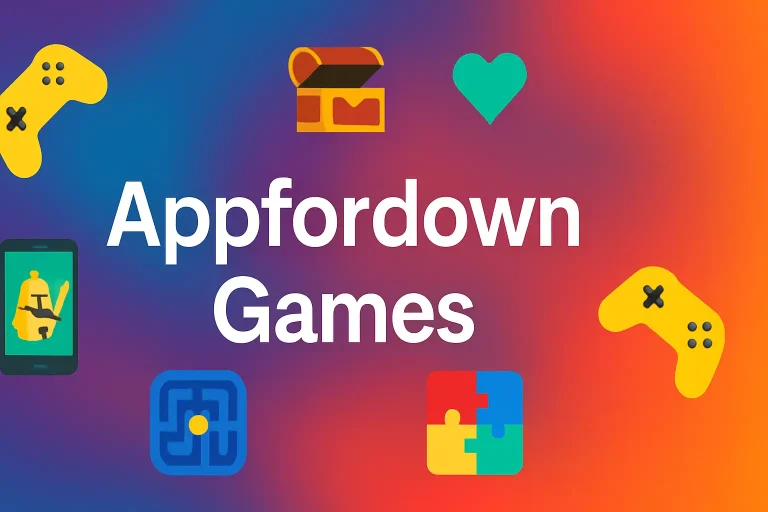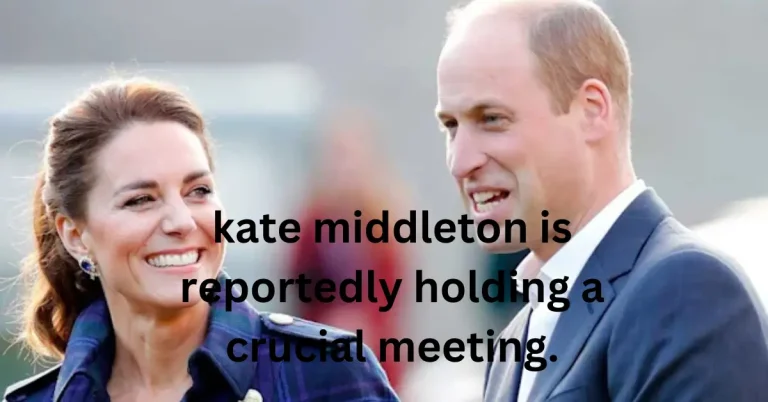
Few things bring a smile to our faces like a clever crossword clue. One such clue—”Joyous Laughter”—recently lit up the NYT Mini Crossword. Its answer, MIRTH, is short, sweet, and packed with cheerful resonance. But beyond being just a five-letter fill-in, this clue is a gateway into understanding language, human emotion, and the art of puzzle-making.
At its core, joyous laughter is a symbol of life’s brightest moments. In the world of The New York Times Crossword, edited by the legendary Will Shortz, even a single word like mirth can evoke centuries of literature, psychology, and human connection. Let’s uncover the deeper significance of this clue.
Joyous Laughter NYT Crossword Clue Explained
The clue “Joyous Laughter” made its appearance in the NYT Mini Crossword, challenging players with its poetic brevity. The answer—MIRTH—reflects a refined, almost Shakespearean joy. It’s not merely laughter, but laughter elevated by light-heartedness and emotional richness.
This kind of clue is what makes the NYT Crossword stand out. It balances simplicity with semantic depth, inviting solvers to think not just literally, but emotionally. And that’s exactly what mirth represents—euphoric expression wrapped in a single, elegant word.
What Is the Meaning of Joyous Laughter?
Joyous laughter isn’t just about a physical response. It’s an emotional release—a reaction to joy, surprise, connection, or relief. According to Psychology Today, such laughter helps reinforce social bonds and reduce stress. It’s a crucial part of what makes us human.
In literary terms, joyous laughter is an archetype of cheerfulness. It signals harmony, contentment, and inner peace. From comedies to spiritual texts, this kind of laughter has always been more than a giggle—it’s a glimpse of the soul at play.
Also Read: https://gossipsmag.co.uk/joseline-hernandez-net-worth/
MIRTH: The Crossword Answer and Its Origins
MIRTH is a word with roots as deep as Old English and Norse. According to the Oxford English Dictionary, it once meant joyful peace. Over time, it became synonymous with festive amusement. Merriam-Webster defines it as “gladness or gaiety as shown by or accompanied with laughter.”
Shakespeare often used mirth in his comedies—proof of its literary pedigree. It’s a word not commonly used today, but in the crossword world, its brevity and elegance make it a perfect fit.
Synonyms and Related Terms for Joyous Laughter
Here are some lively and relevant synonyms for joyous laughter:
- Joyful laughter
- Merriment
- Glee
- Delight
- Chuckle
- Giggle
- Hilarity
- Humor
- Euphoria
- Cheerfulness
- Elation
- Light-heartedness
These terms, while varied in tone, all orbit the concept of mirth—each adding unique shades of joy and emotional nuance.
LSI Keywords and Semantic Connections to Joyous Laughter
Latent Semantic Indexing (LSI) helps connect search terms to concepts. With “joyous laughter,” LSI keywords deepen context and interpretation:
- Positive emotion vocabulary
- Euphoric expression
- Laughter in literature
- Cheerful reactions
- Language of emotion
- Puzzle clue decoding
- Emotional semantics
- Joy in human behavior
- Classic crossword answers
- Clue interpretation strategies
These keywords aren’t just SEO fodder—they reflect the emotional and linguistic complexity embedded in simple clues.
Entities Related to Joyous Laughter in Literature and Media
Let’s look at the influential figures and sources tied to the concept of joyous laughter:
- The New York Times (NYT Crossword)
- Will Shortz – NYT Crossword Editor
- Oxford English Dictionary
- Merriam-Webster Dictionary
- Shakespeare – frequent user of “mirth”
- Sigmund Freud – analyzed humor’s role in the psyche
- Psychology Today – covers joy and mental health
- Mirthquake – 19th-century term for overwhelming laughter
- American Crossword Puzzle Tournament – celebrates clue-making
- Harvard Study on Happiness – links laughter with longevity
These entities provide both authority and cultural richness to our understanding.
Emotional and Psychological Impact of Joyous Laughter
Laughter is more than a mood booster—it’s a health tool. According to the Harvard Study on Happiness, people who laugh more live longer and enjoy better relationships. Joyous laughter lowers cortisol and boosts serotonin, improving both mental and physical health.
Freud saw laughter as a psychological release—a mechanism for processing emotion. Joyous laughter, especially, signifies emotional safety and deep well-being. When a crossword evokes such emotion, it connects with us on a primal level.
Common Contexts Where Joyous Laughter Is Used
You’ll find joyous laughter in settings full of positive emotional resonance:
- Family gatherings or reunions
- Celebrations like weddings or birthdays
- Comedy shows or theater performances
- Literary descriptions of happy moments
- Child play and spontaneous moments of joy
In each of these, laughter signals not just humor, but emotional freedom.
Joyous Laughter in Poetry and Classical Writings
Shakespeare’s works overflow with mirth. In A Midsummer Night’s Dream, laughter symbolizes love and chaos in harmony. Poets like Shelley and Wordsworth used joyful expression to reflect spiritual awakening.
In ancient texts, joyous laughter is seen as divine. Greek and Roman myths often link it with gods and the sacred. This elevates laughter from a reaction to an almost holy experience.
How NYT Crossword Uses Language Creatively
The NYT Crossword is famous for blending challenge with elegance. Its clues often employ wordplay, emotional nuance, and cultural references. “Joyous Laughter” is a perfect example—evoking both literal and emotional meaning.
Will Shortz curates clues that engage different parts of the brain. Solving them becomes a holistic experience: intellectual, emotional, even spiritual.
Crossword Clue Solving Tips for Abstract Words
Abstract clues like “Joyous Laughter” require intuitive thinking. Here are a few strategies:
- Think of emotional synonyms (like glee, elation)
- Consider older or poetic terms (like mirth)
- Visualize the feeling—what word embodies that mood?
Solving these clues isn’t just about vocabulary. It’s about empathy and language awareness.
Joyous Laughter Across Cultures and Languages
Different cultures interpret laughter uniquely. In Japan, laughter is often more subtle. In Italy, it’s expressive and communal. Yet the emotion—joy—is universal.
Language also shapes laughter. German’s Lustigkeit or French’s joie de vivre capture the same spirit as mirth. This reflects our shared humanity through diverse linguistic expressions.
The Role of Mirth in Human Communication
Mirth is not just about laughter—it’s about communicating joy. When someone laughs joyfully, it signals trust, camaraderie, and psychological safety.
In communication theory, mirth enhances cooperation. It builds bridges and diffuses conflict. In crossword clues, this subtle emotional message makes solving satisfying and personal.
How Crossword Clues Reflect Everyday Emotions
- “Joyous Laughter” = Emotional release
- “Cold comfort” = Ironic sadness
- “Happy accident” = Unexpected delight
- “Tearjerker” = Profound sadness
These clues turn puzzles into mirrors of the human experience.
Examples of Crossword Clues Similar to “Joyous Laughter”
- “Burst of glee” → GIGGLE
- “Happy sound” → CHUCKLE
- “Hilarity” → LAUGHTER
- “Festive mood” → MERRIMENT
- “Light-hearted fun” → HUMOR
Each of these represents a joyful state of being—rooted in emotion and culture.
Lexical Analysis: Why MIRTH Was the Best Fit
From a crossword constructor’s view, MIRTH is ideal: short, rich, evocative. It checks every box—emotional depth, historical roots, and linguistic efficiency.
Its placement in a Mini Crossword maximizes its impact. It surprises, delights, and educates in just five letters.
Joyous Laughter vs. General Laughter: A Nuanced Look
General laughter may be reflexive—a response to a joke or social cue. Joyous laughter is different. It’s immersive, genuine, and often uncontainable.
This nuance makes mirth special. It’s the kind of laughter that bubbles up from a soul at ease.
How Laughter Enhances Social Bonding and Health
According to Psychology Today, shared laughter boosts oxytocin—the bonding hormone. It improves trust, cooperation, and memory.
Laughter also acts as emotional glue. When we laugh together, we sync emotionally. Crossword puzzles that remind us of this elevate the experience beyond entertainment.
Joyous Laughter in Modern Psychology and Wellbeing
Modern psychologists view laughter as therapy. Laughter yoga, for instance, uses intentional mirth to enhance wellbeing. The Harvard Study confirms that laughter-rich lives are happier.
In this context, a crossword clue like “Joyous Laughter” becomes an emotional catalyst—a small moment of joy in a busy day.
The Art of Clue Crafting in Crossword Puzzles
Creating the perfect clue involves balance: difficulty, elegance, and emotional tone. “Joyous Laughter” strikes this balance by being simple yet profound.
Will Shortz and others at the NYT aim for clues that resonate. Emotional vocabulary like mirth elevates the solving experience.
Unexpected Uses of the Word Mirth in Modern Writing
Mirthquake, a forgotten gem, once described overwhelming joy. Today, writers use mirth to add classical flair or emotional precision.
Blogs, poetry, and even corporate branding are rediscovering this elegant word. It signals a desire for authentic joy.
Evolution of Humor and Joy in Language
- Ancient texts: Laughter as divine
- Shakespeare: Mirth as romantic and poetic
- Victorian literature: Mirth as moral joy
- Modern use: Mirth as emotional depth
Language grows, but joy endures. Clues like “Joyous Laughter” remind us of this.
Famous Quotes Featuring Joyous Laughter or Mirth
- “With mirth and laughter let old wrinkles come.” – Shakespeare
- “Laughter is the sun that drives winter from the human face.” – Victor Hugo
- “A day without laughter is a day wasted.” – Charlie Chaplin
Such quotes highlight how laughter transcends time and culture.
Crossword Puzzles as Tools for Cognitive Development
Solving crosswords enhances memory, vocabulary, and emotional agility. The NYT Crossword, in particular, trains lateral thinking and semantic precision.
Clues that evoke joy, like “Joyous Laughter,” boost motivation and reinforce positive learning patterns.
Curated Crossword Clues: Joy, Humor, and Emotions
- “Feeling of elation” → EUPHORIA
- “Burst out laughing” → GUFFAW
- “Amused reaction” → SMIRK
- “State of joy” → BLISS
- “Good mood” → CHEERFULNESS
Each clue turns emotional resonance into a game.
FAQs
Q1: What does “mirth” mean in a crossword clue?
A1: Mirth typically means joyous or festive laughter, often used in poetic or older contexts.
Q2: Why did the NYT use MIRTH as an answer?
A2: It’s concise, elegant, and evokes rich emotional meaning in just five letters.
Q3: Are there similar clues to “Joyous Laughter”?
A3: Yes—clues like “Glee,” “Chuckle,” and “Giggle” are often used in similar ways.
Q4: What’s the psychological benefit of solving joyful clues?
A4: They trigger positive emotional responses, boost mental flexibility, and promote happiness.
Q5: Where else can I see the word “mirth” used?
A5: Classical literature, Shakespearean plays, and even modern poetry.
Final Thoughts
A small crossword clue like “Joyous Laughter” hides a universe of emotion, history, and beauty. In solving it, we don’t just fill in squares—we connect with culture, with language, and with each other.
Whether you’re a seasoned solver or a curious newcomer, let this clue remind you of life’s simplest and purest joy: laughter.






